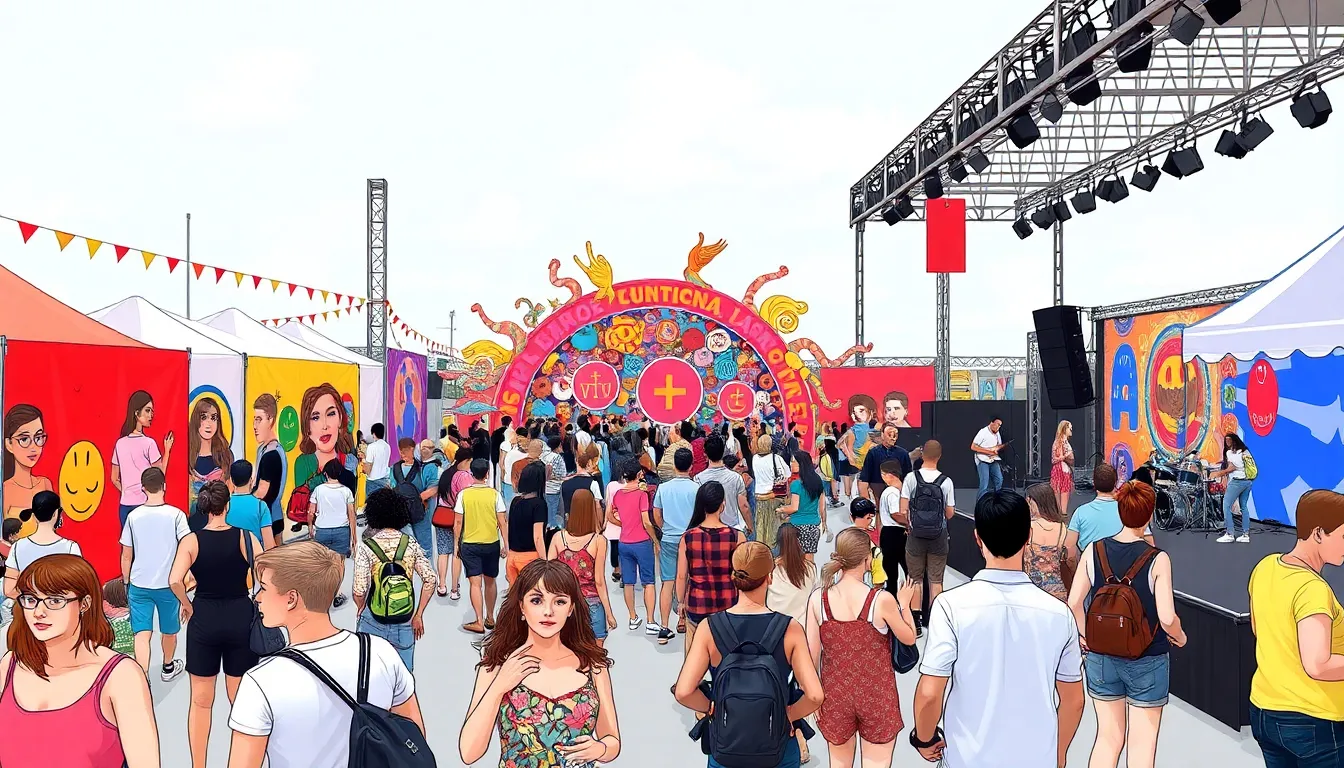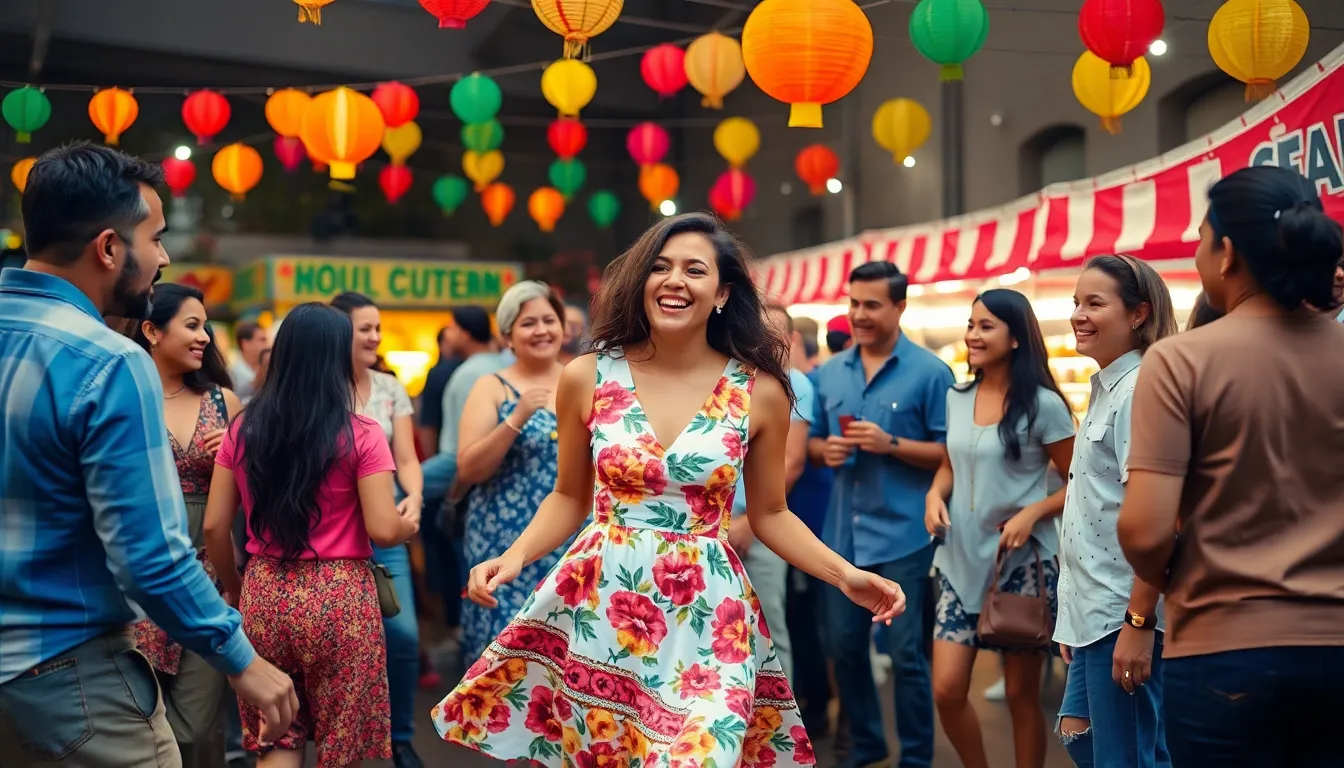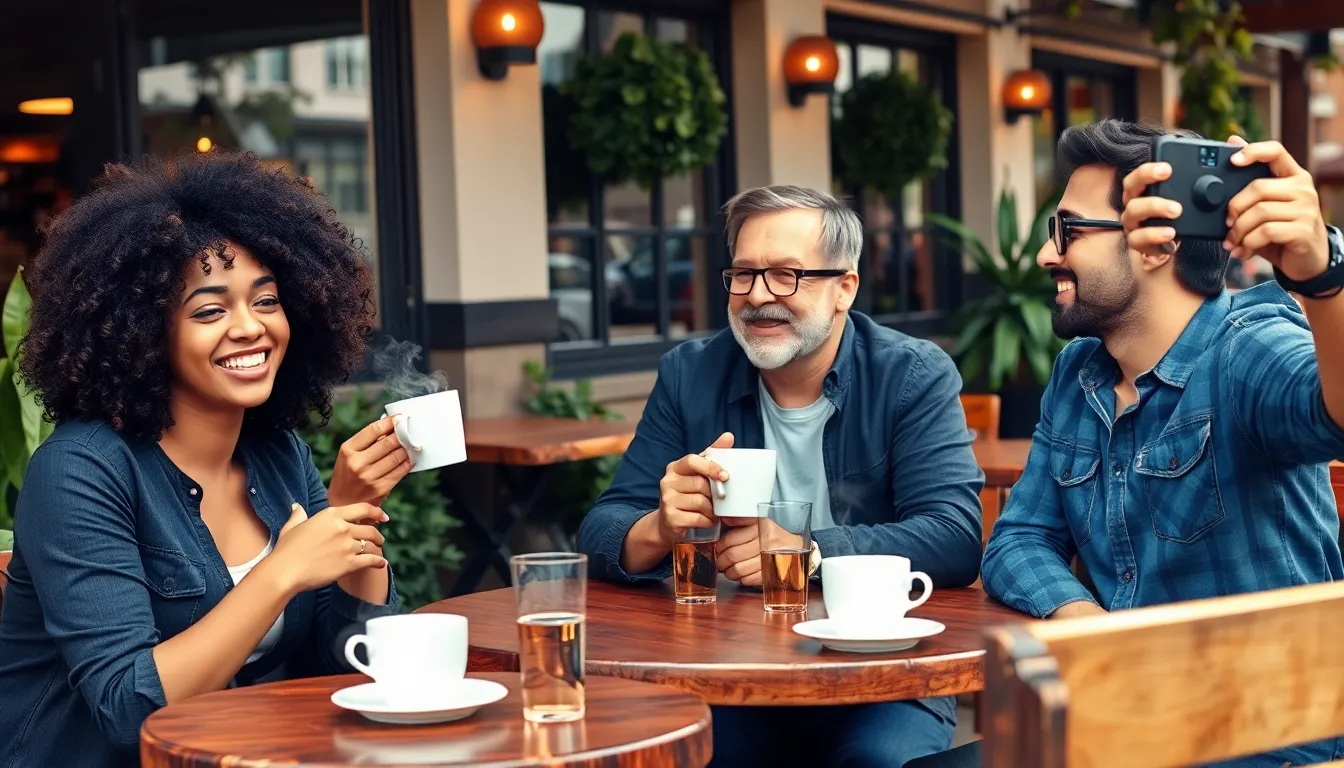Cultural festivals are the ultimate celebration of diversity and creativity, where traditions come alive and communities unite. Picture vibrant parades, mouthwatering food stalls, and the infectious joy of people dancing like nobody’s watching. These festivals aren’t just events; they’re experiences that spark joy, forge connections, and create lasting memories.
Table of Contents
ToggleOverview of Cultural Festivals
Cultural festivals serve as dynamic expressions of community identity and heritage. These events showcase various practices, from music and dance to food and visual arts. Festivals occur in numerous forms, reflecting the unique customs and traditions of different societies.
Joyous parades often highlight cultural festivals, drawing crowds who revel in vibrant displays and colorful costumes. Each festival offers a unique atmosphere, filled with sounds, smells, and tastes that reflect local traditions. Attendees experience an array of delicious cuisines that invite exploration and connection through shared meals.
Participation in cultural festivals fosters a sense of belonging among individuals and families. People from various backgrounds come together, creating an inclusive environment that celebrates diversity. Engaging in activities such as workshops and performances provides attendees with firsthand knowledge of different cultures.
These festivals also contribute significantly to local economies. Many communities rely on increased tourism during festival seasons, boosting businesses and creating employment opportunities. Educational aspects of cultural festivals promote understanding and appreciation of global cultures, enriching community experiences.
Traditionally, festivals mark significant dates or events in a culture’s history. Themes may center around seasonal changes, harvests, or historical anniversaries, providing a deeper understanding of a culture’s evolution over time. Through storytelling, performances, and exhibits, festivals preserve history and pass down stories to future generations.
Cultural festivals connect people, offer joyous experiences, and serve as vital expressions of community identity. They play a crucial role in fostering unity while promoting economic growth and cultural understanding.
Types of Cultural Festivals

Cultural festivals can be categorized into various types, each reflecting unique traditions and modern expressions.
Traditional Festivals
Traditional festivals focus on historical customs and practices. They often celebrate significant cultural events, such as harvests, religious observances, or historic anniversaries. Examples include Diwali, marking the Hindu New Year, and Oktoberfest, celebrating Bavarian culture. These festivals feature traditional music, dance, and regional cuisine, showcasing the richness of a community’s heritage. Many traditional festivals involve elaborate rituals, allowing participants to experience their ancestors’ customs firsthand. Such events play a crucial role in preserving cultural identity, passing down stories, and uniting generations.
Contemporary Festivals
Contemporary festivals highlight modern artistic expressions and societal trends. They often emphasize innovation and creativity, such as music and art festivals like Coachella and Art Basel. These festivals create spaces for artists, performers, and audiences to engage and interact. Urban environments frequently host contemporary cultural celebrations, reflecting current societal issues and global influences. Workshops, showcases, and interactive installations define these events, encouraging community participation. The celebration of diversity within contemporary festivals promotes inclusivity and fosters connections among participants from varied backgrounds.
Importance of Cultural Festivals
Cultural festivals play a vital role in shaping communities and celebrating diversity. Their impact extends beyond mere celebrations.
Economic Impact
Cultural festivals significantly enhance local economies. They attract tourists, leading to increased spending in hotels, restaurants, and shops. In many cases, festivals create jobs, boosting employment opportunities in various sectors such as event management and hospitality. For example, festivals like Mardi Gras in New Orleans can draw over one million visitors, generating millions in annual revenue. Furthermore, local artisans often benefit from increased sales of crafts and food. Festivals also promote local businesses, encouraging community investment and development.
Social Cohesion
Cultural festivals foster social cohesion by uniting diverse groups. They create inclusive environments where individuals from different backgrounds share experiences and traditions. Through music, food, and dance, these events encourage dialogue and understanding among attendees. Social interactions during festivals often lead to lasting friendships and networks. For instance, festivals like the Albuquerque International Balloon Fiesta promote collaboration and camaraderie among participants, cultivating a stronger sense of community. Engaging in shared cultural experiences breaks down barriers and promotes acceptance.
Popular Cultural Festivals Around the World
Cultural festivals attract millions of participants globally, showcasing diverse traditions and celebrations.
Carnival in Brazil
Carnival in Brazil stands out as one of the world’s most famous festivals. This vibrant event occurs annually before Lent, lasting for five days. Participants engage in exhilarating parades filled with colorful costumes, samba music, and spirited dancing. The heart of the celebration often centers around Rio de Janeiro, known for its massive street parties and samba school competitions. Locals and tourists come together to revel in the energetic atmosphere, forging unforgettable memories. The festival significantly boosts the economy, generating millions in tourism revenue while highlighting Brazil’s rich cultural heritage.
Diwali in India
Diwali, also known as the Festival of Lights, celebrates the victory of light over darkness. This five-day Hindu festival typically occurs in October or November, showcasing a blend of rituals and festivities. Families clean their homes, decorate with lanterns, and exchange gifts, fostering unity. Rangoli, intricate patterns made from colored powders, adorns doorsteps, inviting prosperity. Fireworks illuminate the night sky, and traditional sweets enliven gatherings. Diwali not only brings joy but also drives local economies, as shops and markets experience heightened activity during this time, reinforcing community bonds.
Cultural festivals embody the spirit of community and celebration. They offer a unique platform for individuals to connect with their heritage while embracing the richness of diverse cultures. These events not only entertain but also educate, fostering understanding and appreciation among attendees.
By participating in cultural festivals, people create cherished memories and lasting bonds. The economic benefits further enhance their importance, driving tourism and supporting local businesses. As communities come together to celebrate their unique identities, cultural festivals continue to play a vital role in promoting unity and joy across the globe.



